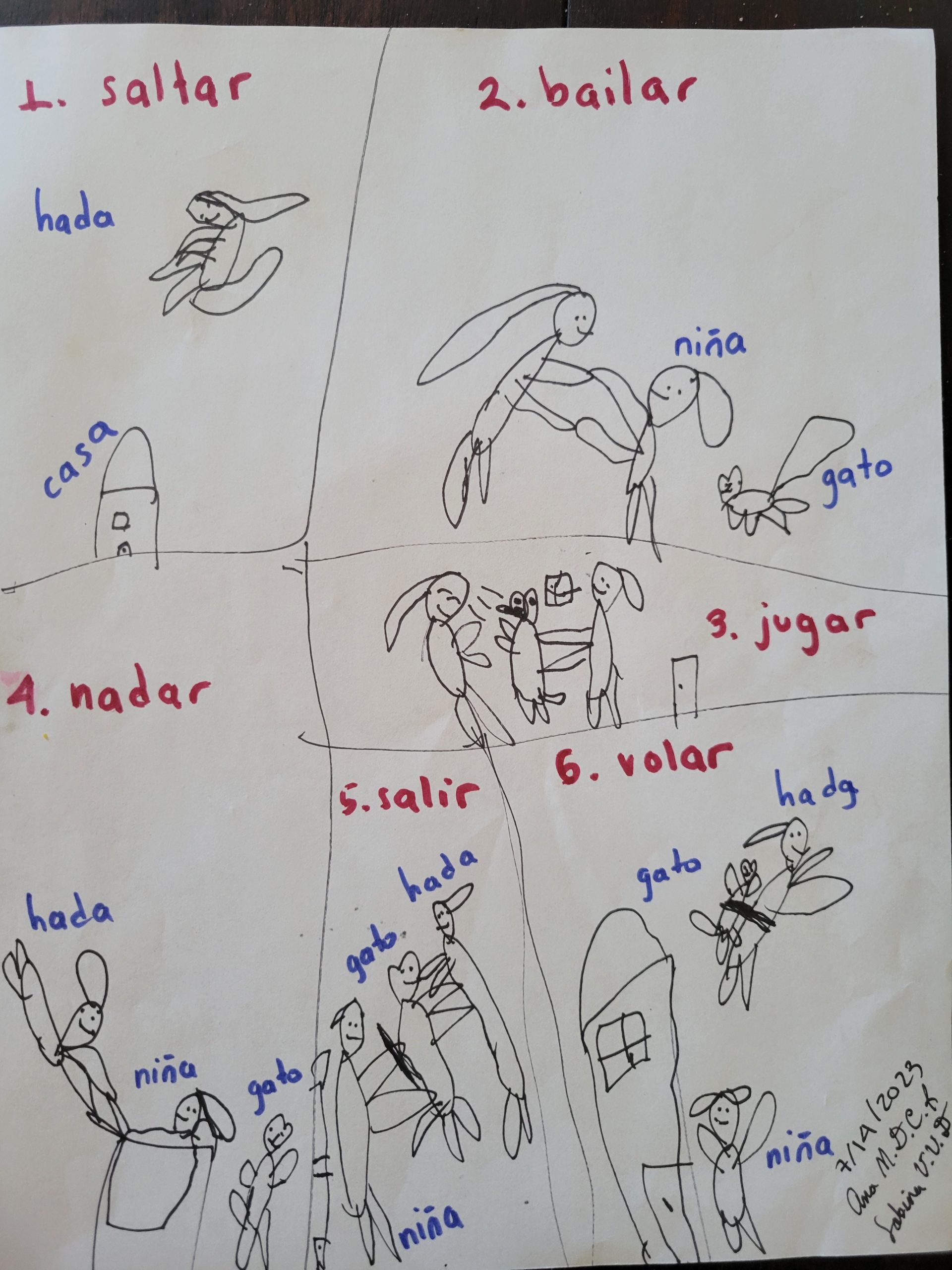47 The preterit: one event in the past
The song “Soy yo” by Bomba Stereo starts with series of things that she did in the past where she made mistakes, had a hard time, but recovered from everything:
Me caí, me paré, caminé, me subí (all MEs are reflexives)
(I) fell (on myself), I put myself on foot (=I stood), (I) walked, (I) climbed on my own
Me fui contra la corriente y también me perdí
(I) went against the current and too myself lost
Fracasé, me encontré, lo viví y aprendí
(I) failed, (I) found myself, (I) lived it and learned
You can guess which verbs are AR endings. All verbs ending in É in the yo-forms are AR verbs:
- Paré=parar (=to stand up)
- Caminé=caminar (=to walk)
- Fracasé=fracasar (=to fail)
- Encontré=encontrar (=to fail)
Verbs ending in ER and IR end in Í forms. You would have to ask Mr.Google which of them they are:
- Subí=subir (=to climb)
- Caí=caer (=to fall)
- Perdí=perder (=to lose)
- Viví=vivir (=to live)
- Aprendí=aprender (=to learn)
To make the tú form in the preterit (one event in the past), AR turns into ASTE (see the underlined stress) and ER IR turns into ISTE (see underlined stress).
- Parar=paré, paraste
- Caminar=caminé, caminaste
- Fracasar=fracasé, fracasaste
- Encontrar=encontré, encontraste
- Subir=subí, subiste
- Caer=caí, caíste
- Perder=perdí, perdiste
- Vivir=viví, viviste
- Aprender=aprendí, aprendiste
| AR | ER and IR | |
| Yo | canté | comí |
| Tú | cantaste | comiste |
| Él, ella, usted | cantó | comió |
| Nosotros, nosotras | cantamos | comimos |
| Ellos, ellas, ustedes | cantaron | comieron |
Sample conversations
What you did last week
A: ¿Qué hiciste la semana pasada?
B: Yo ________________ y _____________.
- Viajar (=to travel) : yo viajé
- Descansar (=to rest) : yo descansé
- Trabajar (=to work): yo trabajé
- Visitar (=to visit) : yo visité (add place you visited)
- Comer (=to eat) : yo comí (add something you ate)
- Ver (=to see) : yo vi televisión
- Ir (=to go) : yo fui a (add place you went to)
Ask your partner whether they did the following things last week, and respond with the past tense.
Verbs ending in AR:
A: ¿Estudiaste la semana pasada? (=Did you study last week)
B: Sí, estudié. / No, no estudié. Pick one
A: ¿_____________ la semana pasada? (=trabajar, to work)
B: Sí, ___________. / No, no ____________. Pick one
A: ¿_____________ la semana pasada? (=limpiar la casa, clean the house)
B: Sí, ___________. / No, no ____________. Escoge uno
A: ¿_____________ la semana pasada? (=montar bicicleta, ride a bike)
B: Sí, ___________. / No, no ____________. Escoge uno
A: ¿_____________ la semana pasada? (=esquiar)
B: Sí, ___________. / No, no ____________. Escoge uno
A: ¿_____________ la semana pasada? (=bailar)
B: Sí, ___________. / No, no ____________. Escoge uno
Verbs ending in ER and IR:
A: ¿_____________ la semana pasada? (=correr, to run)
B: Sí, ___________. / No, no ____________. Escoge uno
A: ¿_____________ la semana pasada? (=comer pizza, to eat pizza)
B: Sí, ___________. / No, no ____________. Escoge uno
A: ¿_____________ la semana pasada? (=salir con amigos, go out with friends)
B: Sí, ___________. / No, no ____________. Escoge uno
Where you were born:
A: ¿Dónde naciste? =Where you birthed, idiom. where were you born?
B: Nací en _____________ (add city) =I birthed in ____________.
Story telling:
To talk about someone else, AR changes to Ó and ER IR to IÓ. In plural or THEY form, AR changes to ARON and ER IR to IERON.
Tell the story of the fairy, the girl and the cat in the comic created by my daughter:
A: Tells what happened in 1.
B: Tells what happened in 2.
A: Tells what happened in 3.
B: Tells what happened in 4.
A: Tells what happened in 5.
B: Tells what happened in 6.

